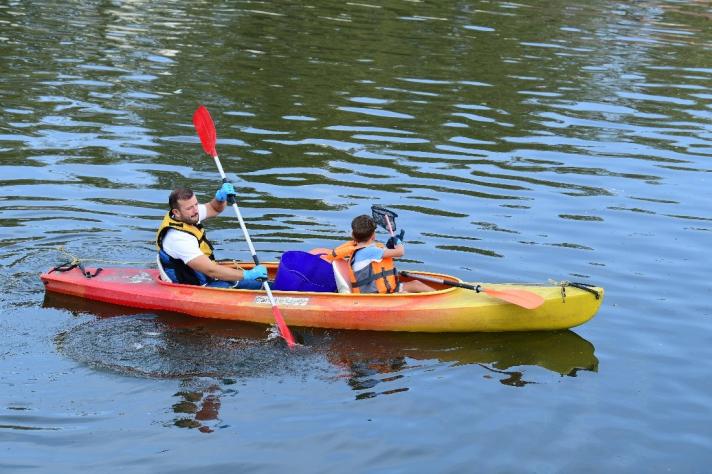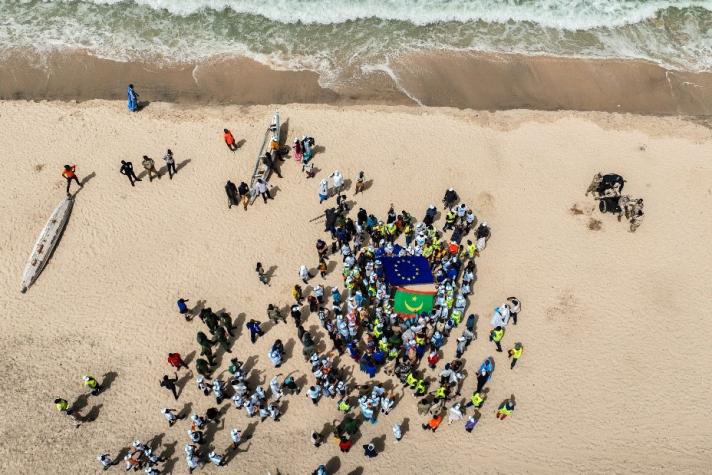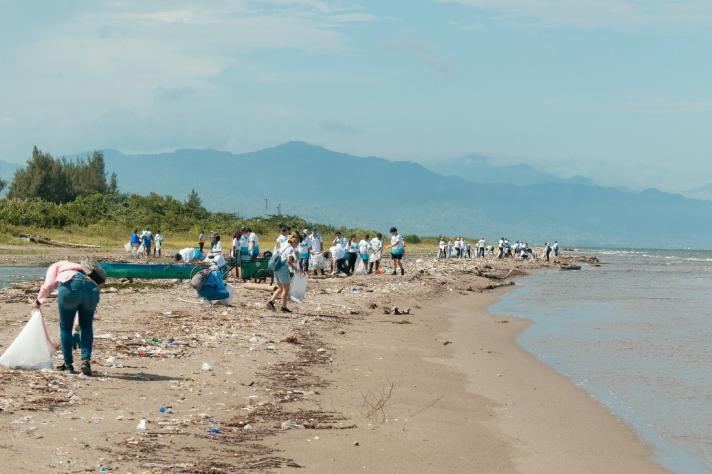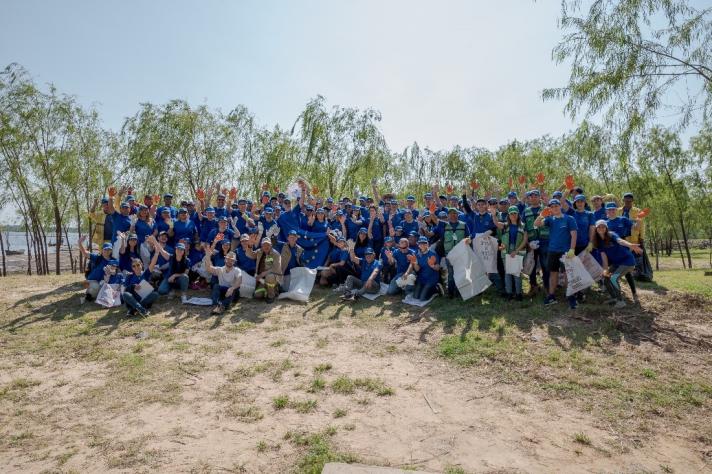
And that’s a wrap on the 2023 #EUBeachCleanup campaign!
44 countries, 555 events, 45,700 participants, and 183,094 kg of waste collected across all inhabited continents.
An incredible year that saw the involvement of so many more citizens, NGOs, EU institutions, Climate Pact Ambassadors, EU Blue Schools, research centres, and so many more!
And as the campaign grows, we see the proof that we can inspire each other and raise awareness of our impact on our environment.
A clean-up doesn’t solve the issue of marine litter, but combined with policy initiatives (see what has been put in place in the background list below), citizens are at the heart of change.
The sea starts here
A big component of this year’s edition was the focus on the impact we have on the seas from even miles away from it. May you be in a seaside town or in a busy city, we’re all linked to our ocean via our rivers, sewers and waterways.
Our very own team at the Directorate-General for Maritime Affairs and Fisheries, along with Commissioner Virginijus Sinkevičius, went down to Brussel’s Canal to lead the way with the association Canal It Up for World Clean-up Day 2023.
A global wave
70,8% of our planet is made of the ocean. Through currents and waves we’re all linked. The piece of trash you throw in the Madrid sewers may end up in the Great Pacific Garbage Patch.
Which is why the #EUBeachCleanup campaign is a global one – with some outstanding work across the globe.
For instance, EU Delegation in the Maldives joined the Maldives for the Ocean initiative, which had organised a massive event across the country, gathering an incredible 33,000 people.
In Europe, we saw the amazing results of the partnership between the EU Representation in Portugal with the great NGO Oceano Azul, leading to 10,000 people rallying up to clean up beaches and riverbanks.
See you next year for the 2024 edition of the #EUBeachCleanup!
Want to participate? Find everything you need on our website!
Background
The #EUBeachCleanup is a campaign organised by the European Commission’s Directorate-General for Maritime Affairs and Fisheries (DG MARE), with the European External Action Service (EEAS) and the United Nations. It is organised in partnership with our blue friends, the Smurfs.
It is key to raise awareness about marine pollution, and how our habits impact our ocean. Every year, 8 million tonnes of plastic end up in the ocean. And it is estimated that up to 37 million tonnes of plastic waste will reach the ocean annually by 2040.
The EU aims to be at the forefront of the battle. Here are some of the actions taken until now:
- the Single-Use Plastics Directive (tackling the 10 single-use plastic items most commonly found on Europe’s beaches – e.g. cotton bud sticks, straws, food containers etc.)
- the Port Reception Facilities Directive (to collect waste from ships, including cargo residues, garbage, oily water and sewage)
- Fishing For Litter projects (give fishing boats reusable bags to collect plastics, debris and other marine litter that gathers in their nets during their normal fishing activities)
- the Marine Strategy Framework Directive aims at good environmental status of European seas. Under this Directive, the EU has also developed a threshold value for beach litter – bringing down the 2016 average of 150 litter items per 100m of coastline to maximum 20 items).
- the Zero Pollution Action Plan (sets targets for marine litter reduction - by 2030, reduce by 50% plastic litter at sea and by 30% microplastics released into the environment).
- the Water Framework Directive (to achieve good status for Europe’s rivers, lakes and groundwater)
- The EU is taking a leading role in global action on plastics, as demonstrated by its support for the setting up of the High Ambition Coalition to End Plastic Pollution. The coalition advocates for an ambitious and effective treaty covering the entire plastics lifecycle to end plastic pollution by 2040.
- measures to restrict intentionally added microplastics (in artificial sport surfaces, cosmetics, fabric softeners etc. - to prevent the release to the environment of about half a million tonnes of microplastics)
Details
- Publication date
- 29 November 2023
- Author
- Directorate-General for Maritime Affairs and Fisheries




